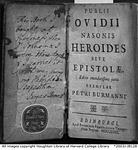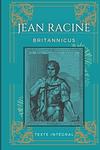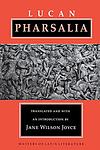The Greatest Roman, French "Rome" Books of All Time
Click to learn how this list is calculated.
This list represents a comprehensive and trusted collection of the greatest books. Developed through a specialized algorithm, it brings together 305 'best of' book lists to form a definitive guide to the world's most acclaimed books. For those interested in how these books are chosen, additional details can be found on the rankings page.
Genres
The category of "Rome" in books refers to literature that is set in ancient Rome or focuses on the history, culture, and society of the Roman Empire. These books may include historical fiction, biographies, memoirs, and academic works that explore the political, social, and economic aspects of Rome. The genre may also encompass stories of gladiators, emperors, soldiers, and other figures from Roman mythology and history. Overall, the category of "Rome" offers readers a glimpse into one of the most influential civilizations in human history.
Countries
Date Range
Reading Statistics
Click the button below to see how many of these books you've read!
Download
If you're interested in downloading this list as a CSV file for use in a spreadsheet application, you can easily do so by clicking the button below. Please note that to ensure a manageable file size and faster download, the CSV will include details for only the first 500 books.
Download-
1. The Aeneid by Virgil
This epic poem tells the story of Aeneas, a Trojan who travels to Italy, where he becomes the ancestor of the Romans. It includes a series of prophecies about Rome's future and the deeds of heroic individuals, and is divided into two sections, the first illustrating the hero's journey and the second detailing the wars and battles that ensue as Aeneas attempts to establish a new home in Italy. The narrative is deeply imbued with themes of duty, fate, and divine intervention.
The 75th Greatest Book of All Time -
2. Confessions by Augustine
"Confessions" is an autobiographical work by a renowned theologian, in which he outlines his sinful youth and his conversion to Christianity. It is written in the form of a long, introspective prayer directed to God, exploring the author's spiritual journey and deep philosophical ponderings. The book is renowned for its eloquent and deeply personal exploration of faith, making it a cornerstone of Christian theology and Western literature.
The 148th Greatest Book of All Time -
3. Memoirs of Hadrian by Marguerite Yourcenar
"Memoirs of Hadrian" is a historical novel that presents a fictional autobiography of the Roman Emperor Hadrian, who reigned from 117 to 138 AD. Narrated in the first person, the novel explores Hadrian's ascension to the throne, his administration, his love for the young Antinous, and his philosophical reflections on life and death. The narrative is framed as a letter to his successor, Marcus Aurelius, offering insights into the complexities of power, the nature of leadership, and the human condition.
The 310th Greatest Book of All Time -
4. Metamorphoses by Ovid
"Metamorphoses" is a classical epic poem that narrates the history of the world from its creation to the deification of Julius Caesar within a loose mythico-historical framework. The narrative is filled with stories of transformation, focusing on myths and legends of the Greek and Roman world. The tales, which include the stories of Daedalus and Icarus, King Midas, and Pyramus and Thisbe, among others, are all linked by the common theme of transformation, often as a punishment or reward from the gods.
The 330th Greatest Book of All Time -
5. Meditations by Marcus Aurelius
"Meditations" is a collection of personal writings by a Roman Emperor, providing deep insights into Stoic philosophy. The book is a series of introspective reflections on how to deal with life's challenges with wisdom, integrity, self-discipline, and benevolent affection for all mankind. It serves as a manual for self-improvement and moral guidance, emphasizing the importance of accepting things outside of one's control and maintaining a tranquil mind amidst adversity.
The 390th Greatest Book of All Time -
6. De Rerum Natura by Lucretius
"De Rerum Natura" is a long didactic poem written in the first century BC, which explores Epicurean philosophy and the nature of the universe. The text delves into topics such as the nature of the gods, the atomic structure of the universe, human sensation and thought, and the fear of death. The author argues that understanding the physical world can free humans from superstition and fear, leading to peace of mind and true happiness.
The 491st Greatest Book of All Time -
7. Annals by Cornelius Tacitus
"Annals" is a historical work that provides a comprehensive account of the Roman Empire from the reign of Tiberius in 14 AD to the death of Nero in 68 AD. The author, a senator and historian of the Roman Empire, explores the inner workings of Roman politics, military campaigns, and social culture during this period. The book offers an in-depth look at the political machinations, power struggles, and the moral decay of the Roman elite, providing a critical perspective on the Roman emperors and their rule.
The 901st Greatest Book of All Time -
8. The Odes by Horace
"The Odes" is a collection of lyric poems by an ancient Roman poet. The poems cover a wide range of themes, including love, friendship, wine, nature, morality, and the human condition. The author's style is noted for its elegance, wit, and mastery of meter. The poems also reflect the social and political context of Rome during the author's lifetime, providing insight into the culture and values of the period.
The 1062nd Greatest Book of All Time -
9. Lives of the Caesars by Suetonius
"Lives of the Caesars" is a historical narrative that provides a detailed account of the personal and public lives of the first twelve Roman emperors, from Julius Caesar to Domitian. The author presents a vivid depiction of their character, behavior, appearance, and private lives, as well as their political actions, military exploits, and administrative policies. The book is a valuable source of information about the Roman Empire's early days, offering a unique perspective on the power, corruption, and extravagance of the Roman elite.
The 1325th Greatest Book of All Time -
10. Letters from a Stoic by Seneca
"Letters from a Stoic" is a collection of moral epistles written by a renowned Stoic philosopher. The letters provide practical guidance on everything from dealing with adversity and the pursuit of wisdom to the folly of consumerism and the nature of friendship. The author's stoic philosophy encourages peace of mind through understanding and accepting the natural order of the universe, and his letters offer timeless wisdom and insights that are still relevant today.
The 1703rd Greatest Book of All Time -
11. Histories by Cornelius Tacitus
"Histories" is a comprehensive account of the Roman Empire from 69-96 AD, a period marked by significant political turmoil. It provides an in-depth look at the reigns of four emperors: Galba, Otho, Vitellius, and Vespasian, along with the social and political upheavals of the time. The narrative also covers the Jewish rebellion and the burning of the Jerusalem Temple, offering a rich historical context of the period. Despite some gaps in the record, it remains a crucial primary source for understanding this era of Roman history.
The 1803rd Greatest Book of All Time -
12. Germania by Cornelius Tacitus
"Germania" is a historical and ethnographic work that provides a detailed description of the lands, customs, and tribes of the Germanic people in the first century AD. The author, a Roman historian and senator, offers a comprehensive account of the geography, anthropology, social institutions, and military practices of the Germanic tribes, often comparing their culture and values to those of the Romans. The work is considered a valuable source of information about the ancient Germanic tribes, despite its possible biases and inaccuracies.
The 2333rd Greatest Book of All Time -
13. Titi Livi Ab urbe condita libri by Livy
This historical work offers a comprehensive narrative of the history of Rome, from its mythical origins to the reign of the Roman Emperor Augustus. The author chronicles the major political, military, and social events of the Roman Republic, including the founding of the city, the establishment of the Republic, the Punic Wars, and the rise of Julius Caesar. The book is a significant source of information about the early history of Rome and is often considered one of the most important works of Roman history.
The 2400th Greatest Book of All Time -
14. Poetry by Quintus Lutatius Catulus
This book is a collection of ancient Roman poetry by a renowned statesman and poet. The poems reflect the author's experiences, thoughts, and feelings about life, love, politics, and society during the Roman Republic era. The author's eloquent and vivid writing style, combined with his astute observations and insights, make this book a valuable resource for understanding Roman culture and history.
The 2844th Greatest Book of All Time -
15. Catiline Orations by Marcus Tullius Cicero
"Catiline Orations" is a series of speeches given by a renowned Roman statesman, which were aimed at exposing and condemning the conspiracy led by Lucius Sergius Catilina. The speeches, delivered in the Roman Senate, are a masterful display of oratory skills and political acumen, as the statesman successfully manages to turn the Senate against Catiline, ultimately leading to his downfall. The book offers an in-depth study of these speeches, providing valuable insights into Roman politics, rhetoric, and the art of persuasion.
The 3093rd Greatest Book of All Time -
16. Natural History by Pliny (the Elder)
"Natural History" is an extensive work of literature that provides a comprehensive look at the knowledge of the natural world during the Roman era. The book is divided into 37 volumes, each focusing on different aspects such as geography, anthropology, zoology, botany, and mineralogy. The author's curiosity and fascination with the world are evident in his detailed observations and descriptions. The book also includes discussions on art, sculpture, and various other topics, providing a rich and detailed snapshot of the Roman understanding of the world.
The 3202nd Greatest Book of All Time -
17. On The Ends Of Good And Evil by Marcus Tullius Cicero
"On the Ends of Good and Evil" is a philosophical work that explores the ethical theories of Hellenistic schools, including Stoicism, Epicureanism, and the Peripatetic tradition. Through a series of dialogues, the text delves into the nature of happiness and the ultimate end of human action, examining what constitutes the highest good. The author critiques and compares the doctrines of these schools, ultimately defending the Stoic view that virtue is the sole basis of happiness and the ultimate goal in life, while also acknowledging valuable insights from other philosophical traditions.
The 4688th Greatest Book of All Time -
18. Leo Africanus by Amin Maalouf
This historical novel follows the life of a real-life Andalusian-born traveler of the 16th century, who is captured by Christian pirates and presented as a gift to the Pope. Renamed after the pontiff, he becomes a respected scholar and diplomat, navigating the complex cultural and religious divides of the Mediterranean world. Throughout his journeys, which take him from his birthplace in Granada to Fez, Timbuktu, Constantinople, and Rome, he witnesses the tumultuous events of his time, including the fall of Granada and the rise of the Ottoman Empire. His story is one of identity, belonging, and the universal quest for knowledge and understanding amidst a backdrop of conflict and change.
The 6161st Greatest Book of All Time -
19. Catiline's War, The Jugurthine War, Histories by Sallust
This book is a combination of three works by a Roman historian and politician, focusing on the political and military events of the late Roman Republic. It first covers the conspiracy led by Catiline in 63 BC, then shifts to the war against Jugurtha in North Africa, and finally provides a fragmentary history of Rome from 78-67 BC. The author uses these events to critique the moral decay of Rome, highlighting the corruption, greed, and ambition that he believed led to the fall of the Republic.
The 6513th Greatest Book of All Time -
20. Heroides by Ovid
The book is a collection of fifteen epistolary poems presented as though written by various mythological heroines of Greek and Roman lore to their absent lovers. These letters express the women's emotions as they lament their separation, recount their memories, and plead for their lovers' return. The work explores themes of love, betrayal, and the female perspective within the context of classical myths, offering a unique insight into the emotional lives of characters such as Penelope, Dido, and Medea, who are traditionally depicted through the eyes of male heroes and writers.
The 7168th Greatest Book of All Time -
21. Mark Antony by Robert Garnier
The book in question is a classic French Renaissance tragedy that delves into the complex and tumultuous life of a renowned Roman general and politician. Set against the backdrop of the Roman Empire's decline, the narrative explores themes of love, power, betrayal, and the tragic consequences of human flaws. The protagonist's story is one of a passionate and ill-fated love affair with a foreign queen, political strife, and the ultimate downfall of a once-great leader. Through poetic language and dramatic scenes, the play examines the intricate interplay between personal desires and the harsh realities of political life, leading to a catastrophic end that reflects on the nature of fate and the inescapable flaws of humanity.
The 7168th Greatest Book of All Time -
22. Cinna by Pierre Corneille
"Cinna" is a classic French tragedy set in ancient Rome, focusing on themes of clemency and tyranny. The play revolves around the titular character, a nobleman involved in a conspiracy to assassinate Emperor Augustus. As the plot unfolds, the conspirators grapple with their moral dilemmas and the consequences of their actions. The emperor, upon discovering the plot, faces his own internal struggle between his desire for justice and the virtue of forgiveness. The narrative explores the complexities of power, loyalty, and the human capacity for mercy, culminating in a surprising act of leniency that challenges the traditional expectations of retribution in tragedy.
The 7168th Greatest Book of All Time -
23. Britannicus by Jean Racine
The play is a tragic depiction of the struggle for power in ancient Rome, focusing on the young emperor Nero's rise to tyranny. It portrays Nero's manipulation and betrayal as he seeks to consolidate his rule, eliminating any threats to his authority. The drama unfolds around his toxic relationship with his mother Agrippina, his ruthless disposal of his stepbrother Britannicus, who is the rightful heir to the throne, and his obsessive love for Britannicus's betrothed, Junia. The narrative is a classic example of political intrigue, moral decay, and the destructive nature of absolute power, highlighting the psychological complexity and emotional turmoil of its characters as they navigate a dangerous and duplicitous court.
The 7168th Greatest Book of All Time -
24. Pharsalia by Lucan
"Pharsalia," also known as "The Civil War," is an epic poem that delves into the intense and tumultuous period of the Roman Republic's downfall, focusing on the conflict between Julius Caesar and Pompey the Great. The narrative, rich in rhetorical and dramatic elements, presents a grim and philosophical reflection on the nature of power, the moral decay of Rome, and the catastrophic consequences of civil strife. Through its vivid and often gruesome depictions of battles, political intrigue, and the personal ambitions that drive men to treachery and violence, the poem serves as a cautionary tale about the fragility of political systems and the human cost of war.
The 7168th Greatest Book of All Time -
25. On The Gods by Marcus Tullius Cicero
The book is a philosophical treatise that explores ancient theological concepts and the nature of the gods, presenting a critical examination of various religious beliefs and practices of the time. The author, a Roman statesman and scholar, engages in a series of dialogues that delve into the existence and attributes of the divine, contrasting the Epicurean view of detached gods with the Stoic belief in a providential order. Through rigorous argumentation and eloquent rhetoric, the work seeks to understand the role of the gods in human life and the universe, while also reflecting on the implications of piety, fate, and the pursuit of happiness within the context of Roman religion and philosophy.
The 7168th Greatest Book of All Time
Reading Statistics
Click the button below to see how many of these books you've read!
Download
If you're interested in downloading this list as a CSV file for use in a spreadsheet application, you can easily do so by clicking the button below. Please note that to ensure a manageable file size and faster download, the CSV will include details for only the first 500 books.
Download





















